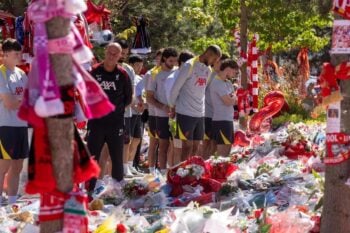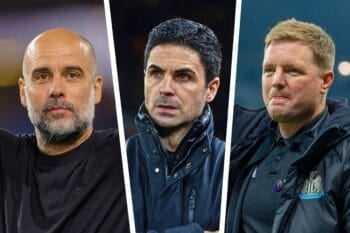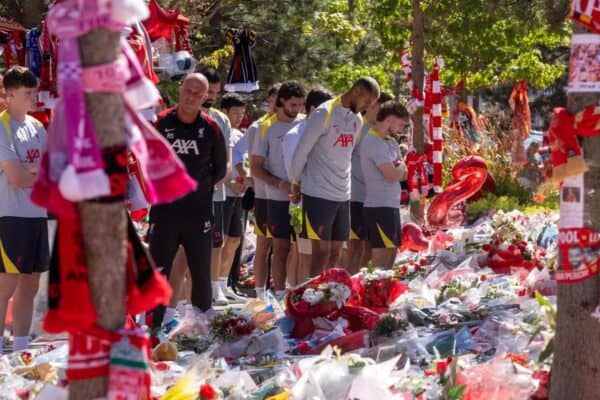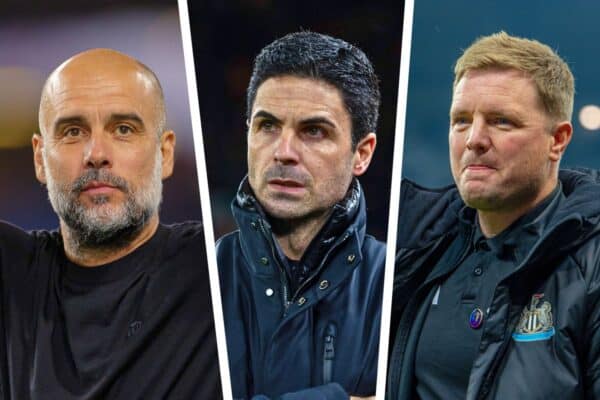Liverpudlian takes a walk down memory lane and recounts the glory years as Bill Shankly transformed Liverpool FC into the Club that went on to ‘conquer the bloody World’.
PERHAPS the most important date of all time in the history of Liverpool Football club is the 1st December 1959, but given that most of you reading this will not even have been born then, for the record that is the date when Bill Shankly walked through the doors as the manager of our club for the first time. At the time we were just a second division side in the days when there was no premiership, very little televised football and Tottenham Hotspur were arguably the best team in the top tier (which was then called division one ) and they proved that by virtue of winning the double the following season. At the age of eight I was too young to know the significance of the man from Kircaldy taking over, but by the time my tenth birthday had come round, Bill had ensured we had been promoted from the second division and were taking the first steps into becoming a force in English football and stepping out on a path to take on the world.
Every little thing that we accept and take for granted nowadays in terms of the history, stature and prestige associated with the name of Liverpool FC, is directly as a result of the job that the great man did in moulding that team to become winners under his unique management style. But before we could conquer England and Europe, we had to become top dog locally and Everton were firmly established and by far the most dominant club on Merseyside. In those days they were know as the “mersey millionaires” due to their affluence and association with John Moores, who was the father of our former chairman David Moores.
Early days up in the boys pen was my apprenticeship in the match day routine and I watched in awe as the bolder members of that fraternity climbed the cage, commando style and then scramble down the far side into the steps of throng beyond and the Kop itself. Never quite having the bottle to attempt such a quest, I managed to acquire enough pocket to enable me to legitimately gain access to the kop via the turnstiles and duly began the ritual of arriving at the ground and hour and a half before kick off to ensure I got in to become a fully qualified member of the kop choir in season 1963/4.
In my very first year then of regularly going to watch my team play, my pocket proved to be money well spent as we won the league. How lucky was that! Countless millions of kids throughout the world have followed their team with barely a sniff of success, so to see us become champions in my very first season of football, bearing in mind where we had come from as a club, almost defied belief. The sense of occasion and the incredible atmosphere in the ground soon became infectious and supporting the club became for me, like so many, a way of life now. Supporting the club has become ingrained in my very soul and those forty plus years of memories will live with me forever.
Those early days in the Kop, the singing and the banter were unforgettable times. “She loves you ” by the Beatles, followed of course by “You’ll never walk alone” and the hairs would stand up on the back of your neck in anticipation of the lads coming out. Everyone had their own “speck” but remaining there amidst the crushing was, of course, another matter but that was all part of the experience. Yes we had the good times but we also had the bad ones too and the importance of never taking anything for granted has stood me in good stead for as we know, football, like life itself, has a habit of kicking you in the teeth at times but without a doubt, the successes on that hallowed turf have far outweighed the bad times.
Bill’s achievement though, in transforming us from second division nobodies to English champions in the space of five years was the springboard to everything that has happened since and he personally transformed us into the household name known throughout the entire world. Proving this was no flash in the pan, the F.A. Cup was won for the first time in our history in 1965 with an extra time victory against a young Leeds United managed by Don Revie in the first of many encounters against a team that would become great adversaries of ours both in the sixties and indeed the seventies as well. Arguably our toughest opponents in that era, that tough, gritty, Yorkshire mentality was synonymous with the attitude of the club and the name Revie is as revered at Elland Road as Shankly is on the kop. Black and white television pictures of Ian St John twisting in mid air, like a salmon, to head the winner at Wembley remain some of the most iconic visions in the history of our club. At the time it was the jibe of Evertonians that we “tell it to the marines” when Liverpudlians talked about winning the cup, this being a sarcastic reference to the army band that always marched and played before the match in those days. The1965 cup win laid to rest that particular bogey and that jibe would never be heard again from the blue half of Merseyside which, from then on, would never quite be the same smug place ever again.
We had also made a very good start in European football in 1964/5 and may well have gone on to win the European cup. The memories of the injured Gordon Milne and Gerry Byrne parading the cup around Anfield before the game when we hosted Inter Milan in the European Cup are still with me to this day and the noise was incredible. Arguably, we beat the best club side in the world that night and had we not been cheated in the return semi final on that infamous night at the San Siro, it might have been Bill that became the first British manager to win the European Cup and not his great friend, Jock Stein of Celtic.
Not to be outdone though, we would again become league champions the next season and also went all the way to the Cup Winners Cup final at Hampden Park but ended up losing finalists. There would be no further success for this team though and we got a very rude wake up call with a thrashing by an Ajax team in 1967 that had unknown youngsters called Cruyff and Neeskens in their ranks. Their style of play would go on to become the benchmark in Europe for years and their academy structure, style of play and training methods are copied to this day around the world.
Domestically it was Manchester United who picked up the mantle as the team to beat with the attacking prowess of Bobby Charlton, Denis Law and the genius George Best. To this day, they remain the greatest opponents I have ever seen us play and their successful period between 1967 and 1971 was a sobering time for us all and the signal for Bill to assemble his second great team.
The side for most of that successful period from 1964 to 1966 was based around the following eleven:
Lawrence, Lawler, Byrne, Milne, Yeats, Stevenson, Callaghan, Hunt, St. John, Smith, Thompson.
Tommy Lawrence : due to his “nourished” appearance, Tommy was unkindly christened the “ flying pig” but he was a very steady goalkeeper for us.
Chrissy Lawler ; the quiet man of the team but years ahead of his time, in that he was an attacking full back who had the ability to ghost into the box unmarked and score. He scored in excess of fifty goals in his career and incredibly none were penalties.
Gerry Byrne: “Gerry Byrne, crunch crunch “ was the chant from the Kop in those days. As hard as nails in the tackle and proved that by playing most of the 1965 cup final with as broken collar bone.
Gordon Milne : Cultured right midfield but in those days the position was known as right half. Very under-rated and busy little player.
Ron Yeats ; Towering centre half, brought from Scotland around whom Shanks built his team, calling him the “colossus.” He was our captain in the sixties and is still involved with the club to this day.
Willie Stevenson : “ Billy Stevo” was another cultured midfielder, had a magnificent left foot and provided the guile in midfield.
Ian Callaghan : “Cally” went on to become Liverpool’s greatest ever servant with a record number of appearances for the club. Fantastic wide man who went on to become a midfield general in the seventies
Roger Hunt : “Sir Roger Hunt “ fantastic goal scorer and predator around the box but was also a willing worker, unselfishly running off the ball to create space for others.
Ian St. John; another scot , the “saint” achieved iconic status at Anfield as a very combative centre forward and along with Yeatsy, formed the basis around which Shanks built the team.
Tommy Smith : “The Anfield Iron “ was another hard man in the team and gave us the insurance for the other midfielders to get forward. A local lad and another member of the side who went on to become a stalwart in the seventies team.
Peter Thompson : as skilful as anyone I have ever seen play for Liverpool. His flair and ability was phenomenal. ”Brazil, Brazil” was the chant from the kop as he curled free kicks into the goal as well as anything Jairzinho could produce.
The main, peripheral, squad players in those three successful seasons were:
Jimmy Melia: who played the first half of the 1963/4 season but was in the twilight of his career.
Alf Arrowsmith : who formed a devastating partnership with Roger Hunt in the second half of the season and was an absolute revelation in scoring 15 goals in 20 games but his career was prematurely cut short by a succession of injuries. Who knows how good he might have been had he stayed fit.
Geoff Strong – recruited from Arsenal and the vital 12th man in the 64/65 and 65/ 66 seasons when we were renowned for using so few players
Indeed it is staggering statistic that in that 1965/66 season, in the process of winning the league, we utilised just 14 players and that included just 5 appearances ( two as substitute ) by Alf Arrowsmith and a solitary appearance, in the last match, by Bobby Graham. Quite a phenomenal achievement when you consider the squads used nowadays, even though it was considered a common practice for the lads in those days to play on with minor knocks in order to retain your place in the side.
Bill instilled into his players the belief that above all, they were privileged to play us and it is indeed an incredible outlook when you consider the player power mind set prevalent nowadays. He finally disassembled the side at the end of the decade but with hindsight, that emergence of Man United domestically and Ajax abroad, should have brought about the rebuilding job earlier than that which took place at the start of the season 1970/71 with the emergence of the second Shankly team that really did go on to become the legends who were again immortalised in song on the Kop as “the pride of division one”
Iconic times, indeed, to be a red.
Liverpudlian















Fan Comments